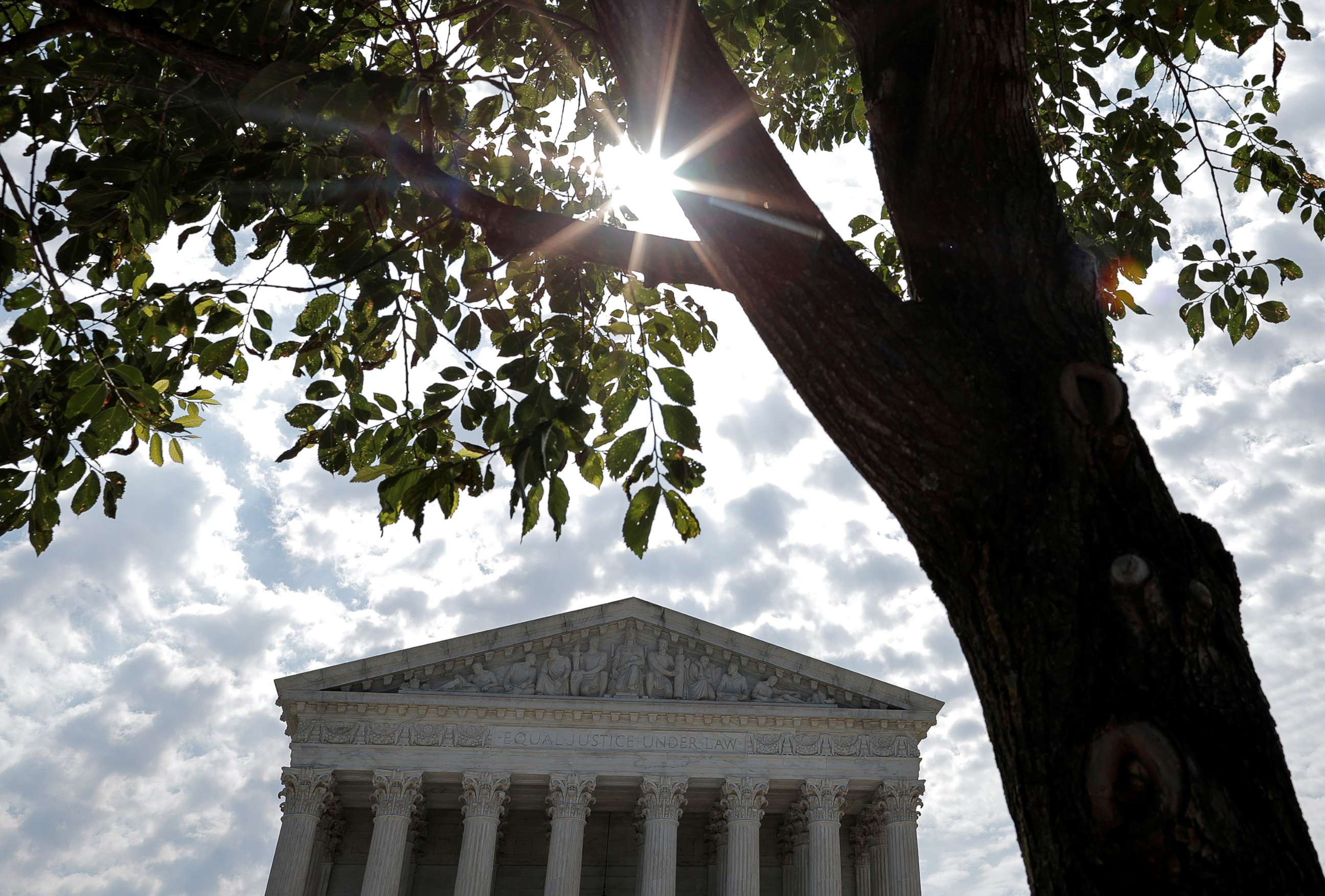Supreme Court going back to in-person arguments
The high court has been hearing arguments over the phone since March 2020.
The Supreme Court is returning to its iconic courtroom in October to hear in-person oral arguments for the first time since March 2020, when the COVID-19 pandemic forced the justices to conduct business over the phone.
Oral arguments scheduled for the October, November and December sessions will be in the courtroom with access limited to essential court personnel, counsel and journalists, the court announced Wednesday.
The justices began meeting in person in April for private meetings to discuss cases, and all nine justices are fully vaccinated. But with the continuing coronavirus pandemic and a surge in cases due to the delta variant, the court will remain closed to the public.
While oral arguments have been held over the phone for the last year and a half, real-time oral arguments have been available to the media for broadcasting to the public. The court anticipates that won’t change with a return to in-person operations, according to the announcement.

That marks a major shift in the court’s transparency because prior to the pandemic, only those sitting in the courtroom had real-time access to the proceedings. Audio recordings of oral arguments were made available to the public at the end of each week, and transcripts of arguments were made available the same day.
The court that is returning to the bench in October is not the same as the one that left in March 2020. Before Justice Ruth Bader Ginsburg died in September of last year, the court's conservatives held a narrow 5-4 majority.
Now conservatives have a powerful 6-3 majority after former President Donald Trump nominee Amy Coney Barrett was confirmed about a week before the 2020 presidential election -- causing an uproar among Democrats over the last-minute appointment. Coney Barret has yet to hear in-person arguments since joining the court.
The court will return from its summer recess to hear arguments Oct. 4 in the cases of Mississippi v. Tennessee, which will determine if Mississippi has sole control of the state’s groundwater, and Wooden v. United States, which will determine whether crimes committed in a sequential spree are considered separate occasions, according to SCOTUSblog.
ABC News' Devin Dwyer contributed to this report.




